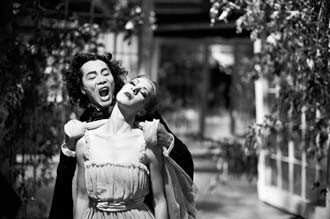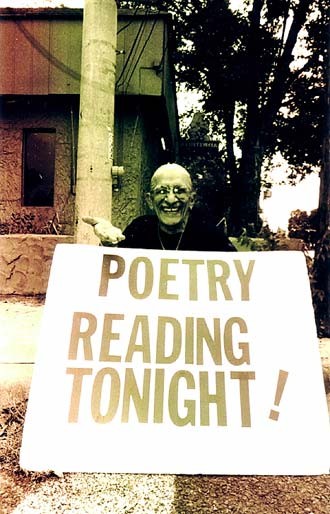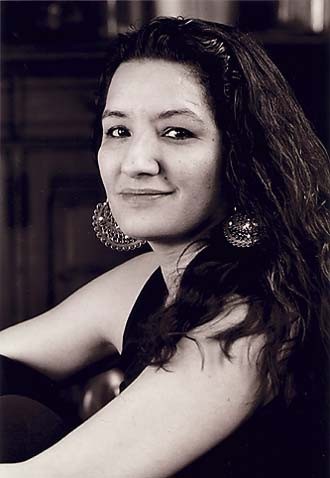SPECIAL SCREENINGS
By John Defore
| Courtesy photo |
Dir. Guy Maddin; writ. Bram Stoker (novel), Mark Godden (ballet); feat. Wei-Qiang Zhang, Tara Birtwhistle, Dave Moroni, CindyMarie Small (NR)
Describing the cinema of Canadian filmmaker Guy Maddin is like coaching a meat-and-potatoes friend on his first visit to a sushi bar: This is going to be completely strange, one wants to say. You won't like it at first. You may not even think it's food. But give it a chance, let your tongue adjust to the unfamiliar, and you just might find yourself addicted to the exotic new sensation.
Dracula: Pages From a Virgin's Diary is a silent film - more or less. It's in black-and-white, except for the objects that are tinted (most of them blood red). And its main purpose is to document a ballet - but the way the filmmaker sets up his shots and edits them together, it's clear that he thinks of himself as an equal participant in the dance.
When Maddin (whose decidedly strange films always draw on long-forgotten styles and sensibilities) was hired to adapt Mark Godden's ballet, his employers knew they would get something closer to Nosferatu than Swan Lake. But dance purists may not anticipate the way the liberties Maddin takes benefit the source material. Under all the musty layers of eccentric artifice, the idea of telling a story through dance feels perfectly natural; in fact, the dancers' movement carries emotional weight in a way it never could in a straightforward PBS-style filmed dance. And while Maddin's framing often obscures much of the original choreography, his technical additions to the action - slow-motion here, an iris shot there - find cinematic equivalents for stagebound magic.
Given Maddin's style, which incorporates superimposition, jarring edits and dissolves, and playfully re-imagined history, it can be hard for viewers to know whether his films are supposed to be funny, serious, or something in between.
The director drops some big hints early in the film: Setting the scene by showing a map of Europe with dark, viscous blood spilling across it, he inserts title cards that mockingly conflate the horror of the undead with xenophobia: "Immigrants!," the titles shout, "From the East!" Here, the Count is played by a Chinese dancer and hunted by decidedly Western men. Amid all the irony, the director appears to have genuine sympathy for the vampire, reserving some of the film's most poetic moments for him and reminding us that his "victims" eagerly invited his attention.
Unlike Maddin's previous films, this one has a built-in appeal for certain groups not usually drawn to experimental film. Horror scholars will need to see it, of course, as will hardcore dance enthusiasts. Large parts of both constituencies will be turned off by the film, probably - but some will open up to it and appreciate a truly unique take on well-worn source material. Between those two groups, and moviegoers who are already fans of this cagy Canuck cinema, it's conceivable that this Dracula could draw a crowd, as well as blood. •
Dracula: Pages From a Virgin's Diary screens Tuesday, September 23 as part of Texas Public Radio's "Cinema Tuesdays" series. 7:30pm at AMC Huebner Oaks, admission $10 members/$12 non-members, 614-8977 or tpr.org for reservations.
Florecimiento del Barroco and Esplendor de la Forma screen at the Instituto de México, 500 HemisFair Park, at 4pm on Sunday, September 21. Info: 227-0130.
SMALL SCREEN
Public Poetry
By Gregg Barrios
| Raul R. Salinas |
At times exhilarating, the film's imagery often overwhelms the poetry itself - which is hard to do when you have poets as powerful as Cisneros, Pat Mora, and Raul R. Salinas reading.
In the throes of Salinas' passionate reading of his classic "Un Trip Through the Mind Jail," our own journey into his world is cut short by an interview segment and a montage of prison cells. In Chicano slang, we call that "matando el rollo" - killing the movie. The literal interpretation of Jesse Cardona's evocative poem "Pan Dulce" renders it superfluous. Yet performance poet Tonantzin's "En Passant" works because she is at home as a character in her own poetic artifice.
| Sandra Cisneros |
Although much palaver is given in the film to preserving Latino literary history, there is little mention of seminal Chicano poets: Ricardo Sanchez, Angela de Hoyos, Tomas Rivera, or Evangelina Vigil-Piñon. Yet, when the poetry is front and center, Voices From Texas transports viewers into the world of bilingual Latino poets who are among the best the nation has to offer. •
Short Films
AURORA DEL VIDEO ARGENTINO
The video scene in Argentina today is strongly marked by a tendency toward testimonials that corresponds as much to an attitude of political correctness as it does to caustic irony. These works evidence recent historical events in Argentina, but they do so metaphorically, without overstating the obvious. The panorama presents a strong experimental current, where genres are mixed or slide between one and the other, with a large degree of human action and a strong performance element, much more so than abstraction or formal exercises. Even the animations reveal much more than simple design. The very knowledge of the medium is questioned from the inside.
The Houston-based Aurora Picture Show, in collaboration with the Pan American Cultural Exchange, presents "Aurora del Video Argentino (The Aurora of Argentine Video)" at the 811 Art Lounge (811 S. Flores, 299-8970) at 8 p.m. on Wednesday, September 24. Admission is $5. Go to www.aurorapictureshow.org for more information.
Animas (dir. Ricardo Pons, 5 min.)
Allegories, metaphors, and literal images of planes from which bodies were thrown into the Río de la Plata are elliptical references to the years of military dictatorship in Argentina.
1 Elipse (dir. Sebastian Zicarello, 5 min.)
This piece is by a young author studying art and cinematography, and it cites one of the pioneers of the moving image: Etienne Marey. Using an image appropriated from television and manipulating time, Zicarello achieves a certain slippage in the communication of information that winds up being as intolerable as violence itself.
Urban Yard (dir. Andrea Juan, 1 min.)
This infinite voyage through a labyrinth with no exit, for an Argentina often considered to be the world's back yard, turns out to be an opportune metaphor for globalization: with allusions to multi-nationals, "non-places," and oppressive entrapment.
20/12 (dir. Mariano Cohn, 2 min.)
This work depicts a typical example of middle-class Argentina, blind to an event with transcendent historical importance, the fall of President Antonio de la Rúa in December of 2001.
Vacas (dir. Gabriela Golder, 4 min.)
The tragedy of widespread hunger in Argentina is manipulated to the point of being converted into an image reminiscent of Goya, an image of bullfighting.
Agustín (dir. Maria Ines Szigety, 1 min.)
Szigety uses the removal of sound as a device, cutting the speech of her adolescent son while leaving only the sound of the conjunctions.
Venimos Llenos de Tierra (dir. Cohn, Adrian de Rosa, Gason Duprat, 2 min.)
How home video becomes video art, an investigation by the artists on the mixture and transformation of audiovisual languages.
El Espiritu de Las Cosas (dir. Elena Laplana, 2 min.)
With a still life by Fortunato Lacámera, a painter from the neighborhood of La Boca, Laplana digitally manipulates the myths of Art History with freedom and irreverence.
Anubis Perdido (dir. Silvia Rivas, 5.5 min.)
Rivas created this poetic, nocturnal video as a dialogue between the earthly and the celestial.
Estudio Para Horizonte en Plano General (dir. Federico Falco, 6 min.)
The premise regarding the horizon is approached from a visual, metaphorical, historical and emotional perspective, and questions the audiovisual language.
200(4) (dir. Carlos Trilnick/Jorge Haro, 1.56 min.)
U_2003>03 (dir. Jorge Castro/Haro, 2 min.)
Two musical videos join the recognized electronic music of Jorge Haro with two of the most important video artists in Argentina. Trilnick was one of the founders of the video creation movement during the 1980s. •




